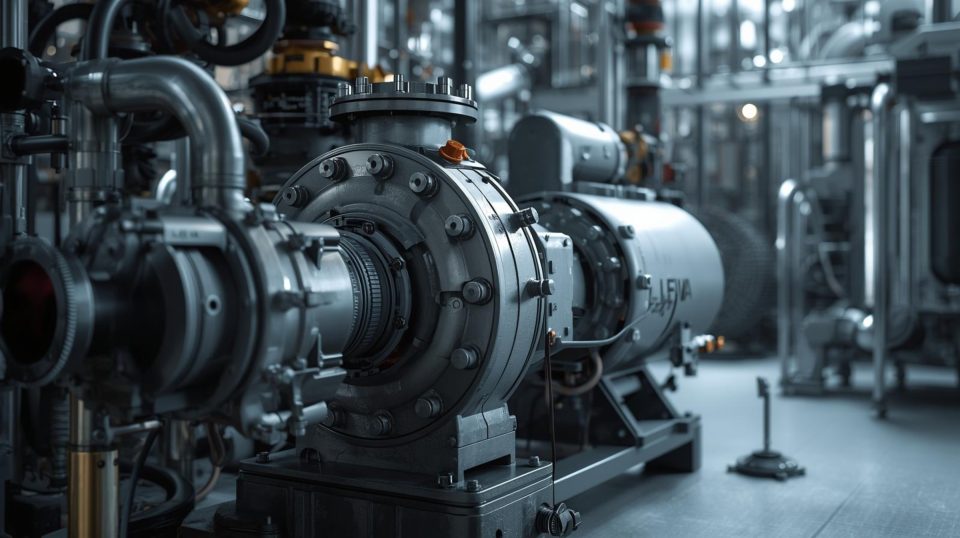Lewa diaphragm metering pumps will play a central role in the ambitious Phase 2 Upgrade of CERN’s Large Hadron Collider (LHC) in Switzerland, supporting a new CO2-based cooling system designed to protect next-generation particle detectors operating at temperatures down to -55°C.
As CERN prepares to ramp up the LHC’s luminosity by a factor of ten, the ATLAS and CMS detectors – two of the facility’s largest and most sophisticated instruments – require enhanced thermal management to safeguard newly installed silicon sensors. These sensors must remain extremely cold to withstand radiation exposure and maintain measurement precision during high-energy proton collisions.
According to Jérôme Daguin, cooling engineer and CMS cooling coordinator at CERN, “ATLAS and CMS will use a two-phase CO2 cooling system for all their silicon trackers and endcap calorimeter detectors, which is an environmentally friendly option compared to other suitable cooling media. The system enables high heat transfer at a low viscosity and a temperature range that is well-suited for operating the detector.”
To meet CERN’s demanding technical specifications, Lewa Switzerland AG engineered a series of design modifications. “The list of requirements was quite ambitious and required some very special adjustments which we made during prototype development,” said Wieland Wolff, Area Sales Manager at Lewa Switzerland AG. Key adaptations included a remote pump head design to isolate the drive unit from ultracold CO2, the use of specialised silicone oil and seals, enlarged diaphragm heads to reduce mechanical stress, and PTFE coatings on critical surfaces to prevent even minimal CO2 leakage.
Eighteen Lewa ecoflow LDG pumps will ultimately support the cooling systems for ATLAS and CMS. Installed in radiation-free service caverns, the pumps are controlled remotely via electric stroke adjustment and frequency inverters, eliminating the need for on-site handling.
By 2028, this pump network will cool electronics and silicon sensors through an intricate web of transfer lines and micro-channels. As Daguin notes, “They are the core element of the cooling units for the Phase 2 Upgrade silicon detectors of the ATLAS and CMS experiments at CERN.” Wolff adds that ongoing collaboration includes planned diaphragm bending cycle tests to further optimise long-term pump performance.


